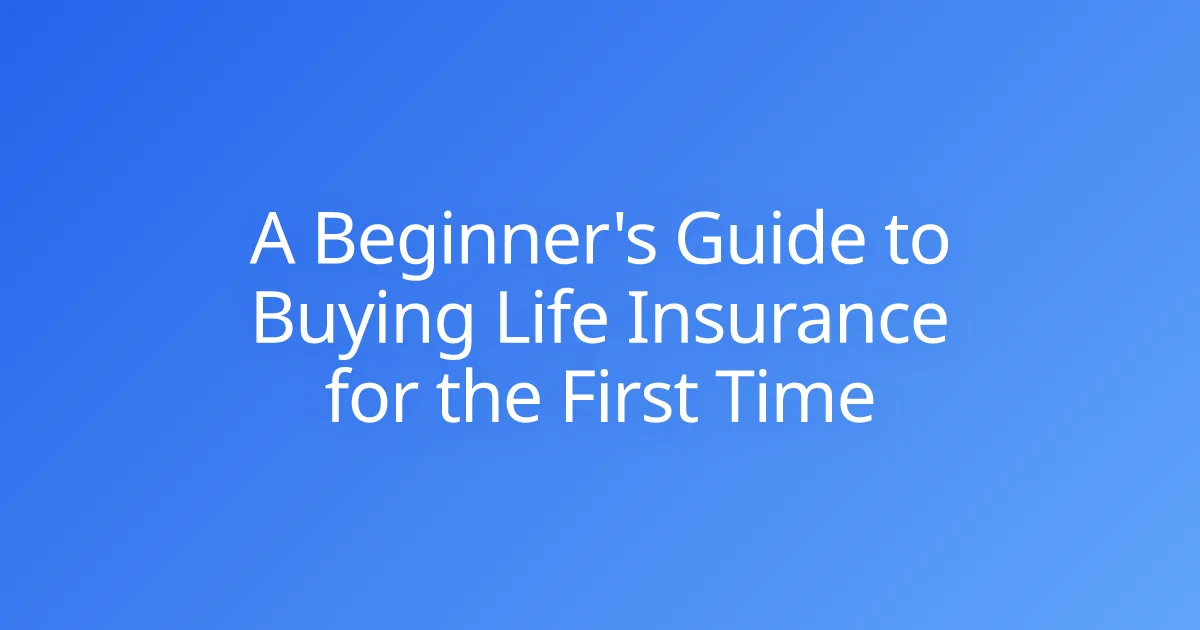Wedding Insurance: Protecting Your Big Day from the Unexpected
The journey to "I do" is often a whirlwind of excitement, anticipation, and meticulous planning. From choosing the perfect venue and finding dream vendors to coordinating countless details, months, if not years, are poured into creating one of life's most significant celebrations. Yet, despite the best intentions, the specter of the unforeseen can loom large: what if a venue closes unexpectedly, a vendor fails to show up, or severe weather forces a last-minute postponement? These dreaded "what ifs" can turn a joyous occasion into a financial and emotional nightmare, leaving couples wondering how to safeguard their immense investment.
At The Policy Explainer, we understand that true peace of mind allows you to savor every moment of your special occasion. This comprehensive guide will illuminate the vital role of Wedding Insurance, detailing precisely how this specialized policy helps in protecting your big day from the unexpected. We'll explain its core coverages, delve into common scenarios where it proves invaluable, and empower you to determine if this crucial form of event insurance is the right investment to secure your celebration, your financial well-being, and your cherished memories.
What is Wedding Insurance? Your Celebration's Safety Net
Wedding Insurance, also known as Special Event Insurance or wedding liability insurance, is a type of coverage designed to protect couples from financial losses due to unforeseen circumstances that might disrupt their wedding plans. It acts as a financial safety net, covering expenses and liabilities that can arise before, during, or even shortly after your wedding day.
Unlike other forms of personal insurance (like homeowners or personal liability), Wedding Insurance is tailored to the unique and often high-stakes risks associated with a single, significant event. It addresses the specific financial commitments and potential legal liabilities that come with hosting a large gathering and contracting numerous services.
Why You Need Wedding Insurance: Mitigating Risks on Your Big Day
Many couples invest tens of thousands of dollars, or even more, into their wedding. This significant financial commitment, combined with the inherent unpredictability of life, makes Wedding Insurance a highly valuable consideration.
1. Protecting Your Financial Investment
- Significant Costs: Weddings are expensive. Without insurance, if your wedding is canceled or postponed due to a covered reason, you could lose thousands of dollars in non-refundable deposits and payments.
- Vendor Reliance: You rely on multiple vendors (venue, caterer, photographer, florist, band). If even one fails to deliver, it can have a cascading financial impact.
2. Guarding Against the Unforeseen
Life is unpredictable. Even the best-laid plans can go awry due to circumstances beyond your control. Wedding Insurance covers a range of such unexpected events, offering peace of mind.
3. Addressing Venue Requirements
Many wedding venues now require couples to carry Wedding Insurance, particularly for liability. This protects both the couple and the venue in case of property damage or guest injury. If your venue requires it, you have no choice but to obtain coverage.
4. Reducing Stress and Anxiety
Knowing you have a financial safety net for potential mishaps allows you to focus on the joy of your engagement and the excitement of your wedding day, rather than worrying about what could go wrong.
Key Coverages of a Wedding Insurance Policy: What It Covers
While policies can vary, most comprehensive Wedding Insurance plans offer two main types of coverage: Liability Coverage and Cancellation/Postponement Coverage.
1. Wedding Liability Insurance
This coverage protects you from financial responsibility if someone is injured or property is damaged during your wedding event. It is often a separate, mandatory requirement by venues.
- What it Covers:
- Bodily Injury: If a guest is injured during the wedding (e.g., slips on the dance floor, trips over equipment). Covers medical expenses, lost wages, and legal defense costs if a lawsuit is filed.
- Property Damage: If your guests or vendors accidentally damage the venue or rented equipment (e.g., a guest breaks a window, a caterer spills food on expensive carpet). Covers repair or replacement costs.
- Alcohol-Related Incidents (Host Liquor Liability): This is a critical add-on. If an intoxicated guest causes an accident after leaving your event, this coverage can protect you from lawsuits claiming you were responsible for overserving them.
- Why it's Essential: Without liability coverage, you could be personally responsible for hundreds of thousands or even millions of dollars in damages and legal fees from a single accident.
2. Wedding Cancellation and Postponement Coverage
This is the core financial protection for your investment in the wedding itself. It reimburses you for non-refundable deposits and payments if your wedding has to be canceled or postponed due to a covered reason.
- What it Covers (Common Covered Reasons):
- Venue Issues: The venue unexpectedly goes out of business, suffers severe damage (e.g., fire, flood) making it unusable, or unexpectedly double-books your date.
- Vendor No-Show or Bankruptcy: Your photographer, caterer, or another key vendor goes out of business, cancels last minute, or fails to deliver services.
- Severe Weather: Extreme weather conditions (e.g., hurricane, blizzard, tornado, widespread flooding) that prevent the couple, immediate family, or a substantial number of guests from reaching the venue, or that render the venue unusable.
- Illness, Injury, or Death: Unexpected illness, injury, or death of the couple, immediate family members, or a key wedding party member (e.g., maid of honor, best man) that makes proceeding with the wedding impossible.
- Military Deployment/Transfers: Unexpected military deployment or mandatory job transfer of the couple.
- Lost or Damaged Attire/Photos: Cost to replace damaged wedding attire (dress, tuxedo) or retake professional photos if the originals are lost or damaged beyond repair (often with limitations).
- Why it's Essential: Protects the substantial financial outlay for non-refundable expenses, allowing you to recoup costs and potentially reschedule.
What Wedding Insurance Typically Does NOT Cover
Understanding the exclusions is as vital as knowing what's covered. Wedding Insurance typically does not cover:
- Change of Heart: You simply decide not to get married or change your mind about the wedding.
- Cold Feet: One of the partners gets "cold feet" and decides to call off the wedding.
- Minor Changes or Disappointments: Minor issues like a vendor delivering the wrong color flowers, a slightly late cake, or minor guest complaints.
- Pre-Existing Conditions: Illnesses or injuries that existed or showed symptoms before the policy's effective date.
- War, Civil Unrest, Government Actions: Unless specifically endorsed, acts of war, civil unrest, or travel bans not directly linked to physical damage to your venue are often excluded.
- Pandemics/Communicable Diseases: Standard policies typically exclude losses due to pandemics or outbreaks, although some providers may offer specific endorsements or riders for very limited pandemic-related coverages.
- Engagement Ring/Wedding Band Loss: Your engagement ring and wedding bands are usually covered under a specialized jewelry rider on your homeowners or renters insurance, not your wedding policy.
- Guest Cancellations: The cost of individual guests canceling their attendance.
- Weather Forecast: Canceling simply because the forecast predicts bad weather (the actual weather must prevent the event or render the venue unusable).
Optional Add-Ons and Specific Coverages
You can often tailor your Wedding Insurance policy with specific riders or by choosing a more comprehensive plan.
- "Change of Heart" / "Cancel For Any Reason" (CFAR) Coverage: While rare for weddings, some insurers offer a highly restrictive, more expensive endorsement that allows cancellation for non-covered reasons, typically with a partial reimbursement.
- Honeymoon Coverage: Some policies can be extended to include coverage for your honeymoon, similar to standard travel insurance (trip cancellation, medical, baggage).
- Specialty Items: Coverage for unique items like custom-made cakes, special decorations, or unique entertainment.
- Gifts: Coverage for wedding gifts that are lost or stolen (often with a low limit).
When to Buy Wedding Insurance and What to Look For
The timing and selection of your Wedding Insurance policy are crucial for maximizing its benefits.
When to Buy It
- Early: It's best to purchase Wedding Insurance as soon as you start making significant deposits or around 1-2 years before your wedding date. Many policies have a waiting period before certain coverages take effect, and you want to ensure your earliest investments (like venue deposits) are protected.
- At Least 30 Days Out: Most insurers won't issue a policy within a few weeks of the event, and some coverages (like severe weather) might have specific clauses regarding known threats.
What to Look For in a Policy
- Coverage Limits: Ensure the cancellation/postponement limit is high enough to cover all your non-refundable expenses and deposits. Check the liability limits to ensure they meet your venue's requirements and your personal risk tolerance.
- Covered Perils: Carefully review the list of covered reasons for cancellation or interruption. Make sure they align with your biggest concerns (e.g., specific weather events, vendor issues).
- Deductibles: Understand what deductible applies to each coverage type. A higher deductible means a lower premium but more out-of-pocket cost if you file a claim.
- Exclusions: Always read the exclusions section thoroughly to avoid surprises.
- Host Liquor Liability: If alcohol will be served at your event, ensure this critical liability coverage is included or can be added.
- "Financial Failure" of Vendors: Check if the policy explicitly covers the financial insolvency or bankruptcy of a vendor.
- Reputation of the Insurer: Choose a reputable insurer with a strong financial rating and positive reviews for claims handling.
- Compare Quotes: Obtain quotes from multiple specialized providers of event insurance or general insurers offering wedding policies. Don't just compare prices; compare the scope of coverage.
Conclusion
Your wedding day is a once-in-a-lifetime event, a celebration of love and commitment that represents a significant emotional and financial investment. While no one wants to envision things going wrong, Wedding Insurance provides a robust and practical solution for protecting your big day from the unexpected. By understanding its vital coverages — from cancellation and postponement due to unforeseen events to crucial liability protection — you empower yourself to make informed decisions that safeguard your celebration against financial ruin and ensure your peace of mind. Investing in this specialized event insurance allows you to focus on the joy of your union, confident that your cherished memories are secured against life's unpredictable twists. Do you have more questions about tailoring a wedding insurance policy to your specific budget or event details?



